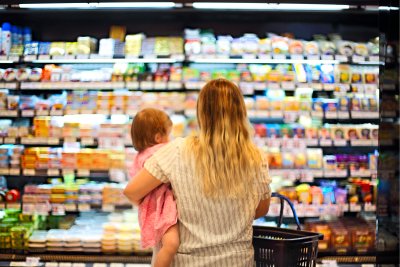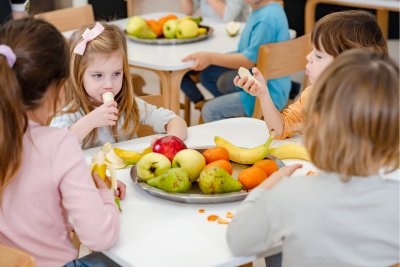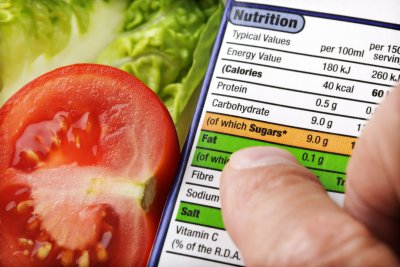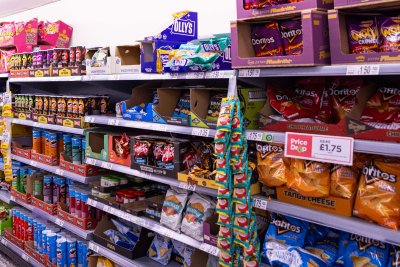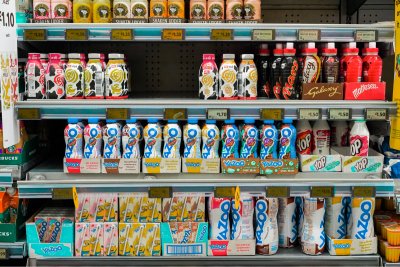 Drinks in a supermarket. Copyright: © 2023. Provided by Impact on Urban Health licensed via a?CC BY-NC-ND 4.0 license
Drinks in a supermarket. Copyright: © 2023. Provided by Impact on Urban Health licensed via a?CC BY-NC-ND 4.0 license
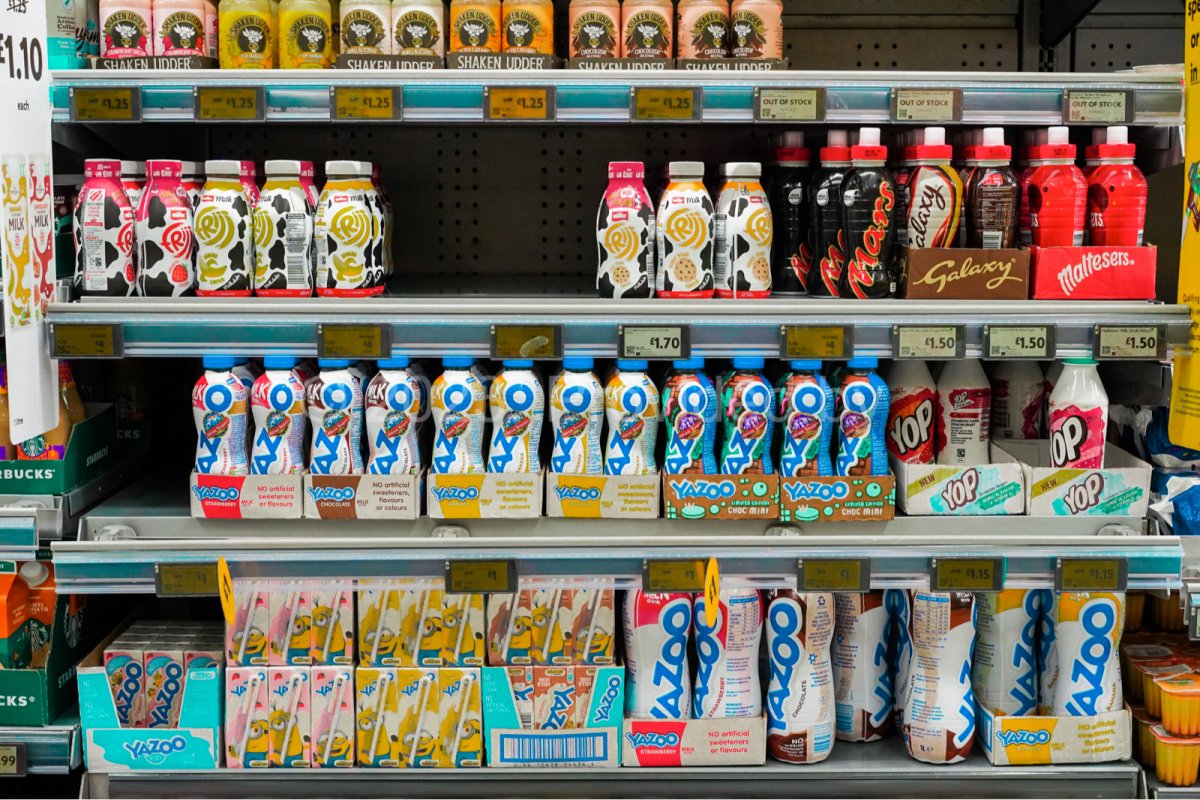
Milkshake loophole closed in soft drinks levy to protect children’s health
The soft drinks levy is being updated to include sugary milk-based drinks and to also lower the sugar content threshold for the tax, changes which could cut 17 million calories a day across the nation.
The Health Secretary has announced the Soft Drinks Industry Levy (SDIL) is being extended to include previously exempt sugary milk-based drinks, including supermarket milkshakes, flavoured milks, sweetened yoghurt drinks and ready-to-drink coffees, into scope, alongside a lower sugar threshold across all included drinks.
Responding to the news, Barbara Crowther, Children’s Food Campaign Manager at Sustain said:
“This update rightly prioritises children’s health over corporate profit. The Soft Drinks Industry Levy has brilliantly succeeded in getting companies to reduce sugar and treating sugary milkshakes the same as fizzy drinks is the right thing to do.
“Companies who’ve already reduced sugar will now be rewarded for acting responsibly, whilst those still stacking excess sugar into milkshakes will now have a clear choice: change their recipe or pay for the health harm caused.
“Aligning the levy threshold with advertising and promotion rules is a sensible move, giving industry one consistent benchmark and making it easier to do business.
The changes, announced following the government’s public consultation earlier this year, will take effect from January 2028. The government’s final response to the consultation, published today, confirms that the levy’s lower entry point will shift from 5g to 4.5g of sugar per 100ml, encouraging more manufacturers to reformulate their products to avoid the charge.
Public health organisations have broadly welcomed the announcement, arguing that the update will strengthen a policy that has already driven major reductions in sugar. Between 2015 and 2024, sugar levels in many soft drinks fell by almost half, with modelling suggests these changes have cut hospital admissions for young children needing dental extractions, and reduced asthma-related hospital admissions among 5–18-year-olds. It may also have prevented around 5,000 cases of obesity in girls aged 10-11.
Today’s update aims to strengthen the policy, with an expected reduction in daily calorie intake by around 4 million in children and 13 million in adults across England. This could prevent almost 14,000 cases of adult obesity and nearly 1,000 cases of childhood obesity.
Campaigners also highlighted that the new, lower threshold creates important policy coherence, aligning the SDIL with the sugar levels used in the UK’s advertising and promotions restrictions. This, they argue, gives the industry a single, clearer benchmark for responsible sugar levels across all aspects of regulation.
But experts say the government could achieve still greater impact by extending the levy to unhealthy food as well as drinks.
Children's Food Campaign Manager Barbara Crowther says:
"We urge the Government now to consider further levers to incentivise healthier food that go beyond soft drinks. We welcome the government's commitment to introducing mandatory reporting as part of a future Health Standard, and we believe that wider use of levies could also accelerate progress by providing financial incentives to companies in changing their recipes, making it easier for everyone to access healthy food and drinks."
Analysis from the Recipe for Change campaign shows that broadening the SDIL to include high-sugar and high-salt foods could also prevent almost 2 million cases of chronic disease, as well as leading to more than 3.7 million quality adjusted life years, worth £77.9 billion to society over 25 years.
Polling also consistently finds strong backing from the public for more regulation on the food industry: 2 out of 3 people in Britain support extending the levy to food, provided that any revenue raised is reinvested in children’s health and only 13% of the British public believe food companies will make their food healthier without Government intervention.
Responses from Recipe for Change coalition members:
Katharine Jenner, Executive Director, Obesity Health Alliance, said:
“Ending the exemption for sugary milkshakes and bringing more sugary soft drinks into the levy is a sensible and long-overdue step to protect children’s health - especially their teeth. The Soft Drinks Industry Levy has already removed billions of teaspoons of sugar from the nation’s diet without harming industry growth, proving that clear, consistent rules are effective.
“We now urge the Government to press on with implementing the rest of its NHS 10-year plan for health. Mandatory reporting of healthy food sales with clear targets, improved school food standards, a ban on energy drinks for children, and tighter junk-food advertising rules based on the latest Nutrient Profile Model, alongside a stronger levy, would help rebuild a food environment that supports children’s health rather than undermines it.”
Dr Charmaine Griffiths, Chief Executive of the British Heart Foundation (BHF), said:
“The more sugar cut from drinks on supermarket shelves, the better, so extending the levy to include sugary milk-based drinks is the right thing to do. The current levy has been extremely effective at incentivising manufacturers to reduce sugar levels in soft drinks, and evidence has shown free sugar consumption in children and adults has decreased.
“Diets high in sugar are linked to weight gain and obesity, which increase the risk cardiovascular disease, high blood pressure and type 2 diabetes. We hope this move motivates manufacturers to cut the amount of sugar in milk-based drinks and going forward, we need to keep up the pace of progress so families have far more healthy choices available to them."
Dr Hannah Brinsden, Head of Policy and Advocacy at the Food Foundation said:
Today's announcement that the soft drinks industry levy (SDIL) is to be strengthened is a welcome step, and acknowledgement of the major public health success SDIL has had to date – it has created a financial incentive for companies to remove tonnes of sugar from soft drinks, while also raising much needed revenue for children's health. It's only right the design is strengthened to ensure it is having the maximum impact and that its success continues. Companies should put their consumers health first and introduce changes without delay.
The government has set out a vision for a new ‘good food cycle’, which will require incentives across the food system that encourage healthier, more sustainable food for everyone. We know sugar comes from a range of food, not just soft drinks, so the government should now be looking to learn from the success of SDIL to date and extend it to food, as part of efforts to grow a strong economy that supports public health, and reset the economic incentives in the food system. This will also help create new revenue that can be invested in addressing key priorities such as child poverty and children’s health.
Nikita Sinclair, Head of Children’s Health and Food programme, Impact on Urban Health said:
"The government has made a positive step forward in protecting children's health by extending the Soft Drinks Industry Levy to cover packaged milk-based drinks and continue to move in the right direction by reducing sugar across soft drinks.
"We know that many food and drink companies want to do the right thing - this move gives them the opportunity to change to healthier recipes and help create a level playing field for businesses, all while protecting industry growth.
"The government should build on the SDIL's positive impact on health and extend the levy to foods high in salt, sugar and fat. It would also create revenue which could be used to help make healthy, nutritious food the easiest, rather the most difficult, option to access. This could be through further expansion and awareness of the Healthy Start scheme or improving the nutritional quality of school food. At a time when healthy food is increasingly unaffordable, this would give all children the opportunity to access healthier food, no matter where they grow up."
Dr Kawther Hashem, Senior Lecturer in Public Health Nutrition and Head of Research and Impact at Action on Salt and Sugar, said:
“We welcome today’s announcement and are pleased to see further progress on tackling excessive sugar consumption. Lowering the threshold from 5g to 4.5g per 100ml is a positive step, and expanding the levy to include milk-based drinks is particularly important. Some milkshakes still contain more sugar than a can of full-sugar cola, yet they have been allowed to sit outside a levy specifically designed to reduce high sugar content. Closing this loophole finally ensures that all high-sugar drinks are treated consistently, regardless of their ingredients.
"However, we had hoped the Government would go further. The consultation explored reducing the minimum sugar threshold to 4g, so it’s unclear why this has now risen to 4.5g... today’s decision misses an opportunity to drive further meaningful reformulation. We also called on the Government to create a new upper tier for drinks exceeding 10g of sugar per 100ml, targeting the major brands that have refused to reduce sugar in their high sugar drinks. This would have prevented companies that choose not to reformulate from gaining an unfair advantage over those actively investing in sugar reduction.
“We know the levy works, and when the rules are clear and consistent, manufacturers act fast. The Soft Drinks Industry Levy has already taken billions of teaspoons of sugar out of the UK diet without holding back industry growth. Today’s move builds on that progress, but if we’re truly committed to improving the nation’s health and the nation’s teeth, we’ll need to be even more ambitious.”
Dev, Bite Back Youth Activist said:
“This is great news from the Government, especially because it finally tackles sugary milkshakes and other milk-based drinks. The amount of sugar in these products has been completely outrageous, and young people like me have been saying it for years. We’re targeted with these drinks everywhere — in supermarkets, on our streets, and across our socials — so this is a really important step. But it can’t stop here. We need this to be part of a bigger package that also strengthens advertising rules online, on TV and outdoors. Big food companies have been given long lead times before and used them to delay and lobby their way out of action. That can’t happen again. Young people will be watching closely.”
Helen Kirrane, Head of Policy, Campaigns & Mobilisation at Diabetes UK said:
"With cases of type 2 diabetes continuing to rise at an alarming rate, particularly in younger people, we need bold action to cut unnecessary sugar from food and drink.
"The Soft Drinks Industry Levy has already substantially reduced the sugar in soft drinks, lowering the amount of sugar consumed by children. Expanding it to include milk-based and milk-alternative drinks, which can contain large amounts of hidden sugar, is a welcome step forward.
“We know that, for many people, it can be overwhelming to navigate such a wide range of products, and it’s not always clear what is good for us. This change will help ensure the healthier choice is the easier choice.”
Eddie Crouch, Chair at British Dental Association, said:
“The success of this policy won’t be about filling the black hole in the public finances; it will be whether industry will reformulate.
“Voluntary action here has achieved nothing. But since it rolled out in 2018, the sugar levy has led industry to remove tens of thousands of tonnes of sugar from soft drinks.
“Tooth decay is the number one reason for hospital admissions among young children. This is precisely the time for government to go further and faster with tried and tested policies.”
Rob Percival, Head of Food Policy at the Soil Association, said:
“Extending the Soft Drinks Industry Levy to cover more products, including sugary milk-based drinks, is both welcome and overdue. It’s essential that government employs smart fiscal tools to enable healthier diets, especially among children. This commitment should be matched with efforts to ensure that children’s tastes adapt to less sweet foods and drinks, without any increase in artificial sweetener consumption. Additional funding for freshly prepared school meals would be one way that government could achieve this, supporting children to grow up enjoying the tastes and textures of healthy, fresh and whole foods.”
Recipe for Change: Coalition coordinated by Sustain calling for an industry levy to help make food healthier.
Sustain
The Green House
244-254 Cambridge Heath Road
London E2 9DA
020 3559 6777
sustain@sustainweb.org
Sustain advocates food and agriculture policies and practices that enhance the health and welfare of people and animals, improve the working and living environment, promote equity and enrich society and culture.
© Sustain 2026
Registered charity (no. 1018643)
Data privacy & cookies
Icons by Icons8
